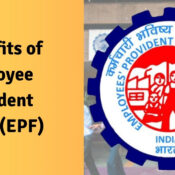Challenges NRIs Face When Moving Back to India

Returning to India after living abroad presents a host of unique challenges for Non-Resident Indians (NRIs) and their families. This transition can be incredibly daunting when it involves children who have grown accustomed to a different educational system and cultural environment. This blog explores the challenges NRIs face when moving back to India, focusing on choosing the right school for their children. Ensuring a smooth transition and a high-quality education requires thorough research and careful planning.
Challenges NRIs Face When Moving Back to India
1. Cultural Adjustment and Integration
Adjusting to Indian culture after living abroad can be as challenging as adapting to a foreign culture. Children may experience reverse culture shock, finding it difficult to reintegrate into the local customs and social norms they once knew.
Considerations:
- Cultural Programs: Enrol children in cultural programs focusing on Indian traditions to ease the transition.
- Peer Support: Connect with other returning families to share experiences and provide mutual support.
2. Absence of Social Circle
Upon returning to India, children might struggle to rebuild their social circles, feeling disconnected from peers who haven’t experienced life abroad.
Considerations:
- International Schools: Consider international schools where other children have similar backgrounds, facilitating easier social integration.
- Extracurricular Activities: Encourage participation in extracurricular activities to help children make new friends.
3. Lack of Support
The supportive environment in international schools might not be present in local schools, affecting the child’s ability to adapt and excel.
Considerations:
- Counselling Services: Choose schools that offer robust counselling services to support children through the transition.
- Parental Involvement: Be actively involved in the child’s school life to provide additional support.
4. Discrimination
Children who have lived abroad might face discrimination or bullying due to their foreign accents, mannerisms, or different experiences.
Considerations:
- Awareness Programs: Select schools with anti-bullying policies and promote cultural sensitivity.
- Open Communication: Maintain open communication lines with children to address any issues promptly.
5. Food
Adapting to the local diet after getting used to international cuisines can be challenging for children.
Considerations:
- School Cafeteria: Ensure the school cafeteria provides various food options catering to different dietary needs.
- Home Meals: Gradually reintroduce Indian cuisine at home before moving to help children adapt.
6. Health
The healthcare system and standards may differ significantly from those abroad, impacting children’s well-being.
Considerations:
- Healthcare Access: Ensure access to good healthcare facilities and have a plan for regular health check-ups.
- Health Insurance: Secure comprehensive health insurance that covers various medical needs.
7. Academic System Differences
The Indian education system, including the curriculum and teaching methods, may vastly differ from what children are accustomed to abroad.
Considerations:
- School Boards: Understand the different school boards in India, such as CBSE, ICSE, IB, and State Boards, to choose the one that aligns best with your child’s previous education.
- Tutoring: Consider additional tutoring to bridge any gaps in the curriculum.
8. Language Barriers
Children might struggle with regional languages or even the medium of instruction if it differs from their previous school.
Considerations:
- Language Classes: Enroll children in language classes to improve their proficiency in the regional language or Hindi.
- Medium of Instruction: Choose schools that offer instruction in English if that is the medium abroad.
9. Visa and Immigration Issues
Navigating the bureaucratic processes of moving back can be cumbersome, particularly for families with multiple citizenships or OCI cards.
Considerations:
- Legal Assistance: Seek legal assistance to understand and manage visa and immigration requirements.
- Documentation: Keep all necessary documentation up-to-date and accessible.
10. Career and Job Prospects
Parents might face challenges finding suitable employment, impacting the family’s financial stability and the children’s education.
Considerations:
- Employment Opportunities: Research employment opportunities well in advance and consider networking within the NRI community.
- Local Integration: Understand the job market dynamics and seek roles that value international experience.
11. Return Migration
Children might face difficulties readjusting to Indian culture, finding suitable employment, and rebuilding their social networks.
Considerations:
- Cultural Reorientation: Engage in activities that reintroduce children to Indian culture and traditions.
- Professional Guidance: For older children, seek professional guidance for career counselling and job placements.
12. Scams
Admission and employment scams targeting NRIs can pose significant risks.
Considerations:
- Research: Thoroughly research schools and universities, checking their accreditation and reputation.
- Professional Help: Consider consulting education advisors or career counsellors to avoid falling prey to scams.
13. Homesickness
Children might feel homesick for their lives abroad, impacting their mental and emotional well-being.
Considerations:
- Support Networks: Build a support network of friends and family to help children feel connected.
- Therapeutic Support: Consider seeking professional help, such as counselling or therapy, if homesickness persists.
Choosing the Right School for Children
Selecting the right school is crucial for ensuring your child receives a quality education that meets their academic and cultural needs. Here are the key factors to consider:
Understanding the Various Educational Boards in India
Central Board of Secondary Education (CBSE)
- Curriculum: National-level curriculum focusing on science, mathematics, and standardized testing.
- Language: Primarily English and Hindi.
- Features: Widely recognized across India and abroad, CBSE emphasizes entrance exam preparation for engineering and medical fields.
- Ideal For: Students aiming for national-level competitive exams and seeking transferability across states.
- Global Job Prospects: CBSE’s emphasis on STEM subjects and standardized testing prepares students well for global competitive exams and higher education, leading to good job opportunities abroad.
Council for the Indian School Certificate Examinations (CISCE – ICSE/ISC)
- Curriculum: Offers a comprehensive and balanced curriculum emphasizing English language and literature.
- Language: Strong focus on English.
- Features: Known for its rigorous and detailed syllabus, particularly in humanities and arts, alongside science.
- Ideal For: Students interested in a well-rounded education with solid language skills and those considering studying abroad.
- Global Job Prospects: The strong foundation in English and critical thinking skills provided by ICSE/ISC is highly valued internationally, enhancing job prospects in multinational companies and global institutions.
International Baccalaureate (IB)
- Curriculum: Global curriculum designed to develop critical thinking and research skills.
- Language: English is the primary medium.
- Features: Recognized worldwide, IB focuses on holistic education, including creativity, activity, and service (CAS).
- Ideal For: Students seeking higher education abroad or in internationally recognized Indian institutions.
- Global Job Prospects: IB is highly regarded globally, and international universities and employers often prefer its students for their well-rounded education and critical thinking skills.
State Boards
- Curriculum: Varies by state, focusing on regional language and culture.
- Language: Instruction can be in the state’s official language or English.
- Features: Syllabus designed to align with state-level competitive exams and local requirements.
- Ideal For: Students planning to stay in the same state for higher education or those who prefer instruction in their mother tongue.
- Global Job Prospects: While state board students might face more challenges abroad due to curriculum quality and recognition variability, excelling in state board exams and additional qualifications can still open global opportunities.
Cambridge International Examinations (CIE)
- Curriculum: Offers IGCSE and A-level programs with an international perspective.
- Language: Primarily English.
- Features: Flexibility in subject choices, emphasizing independent learning and critical thinking.
- Ideal For: Students aiming for global education standards and flexibility in subject selection.
- Global Job Prospects: CIE qualifications are recognized worldwide, providing excellent preparation for higher education abroad and enhancing employability in international job markets.
Conclusion
The transition from studying abroad to returning to India is complex and multifaceted. Parents and children can make informed decisions to ensure a smooth transition by understanding and preparing for these challenges. Choosing the right educational path, such as the appropriate school board, and providing robust support systems are crucial steps in this journey. With careful planning and consideration, NRI families can successfully navigate the return migration and provide a fulfilling and enriching environment for their children’s education. To ensure continuity and high standards in education, NRI families are recommended to choose the International Baccalaureate (IB) or the Indian Certificate of Secondary Education (ICSE) boards. These boards are known for their rigorous curricula and global recognition, making them well-suited for students transitioning from an international educational background.
Disclaimer: The information provided here is for educational and informational purposes only and should not be construed as financial, legal, or tax advice. Consult with a qualified professional before making any investment decisions. We do not accept any liability for errors or omissions in this information nor any direct, indirect, or consequential losses arising from its use.




